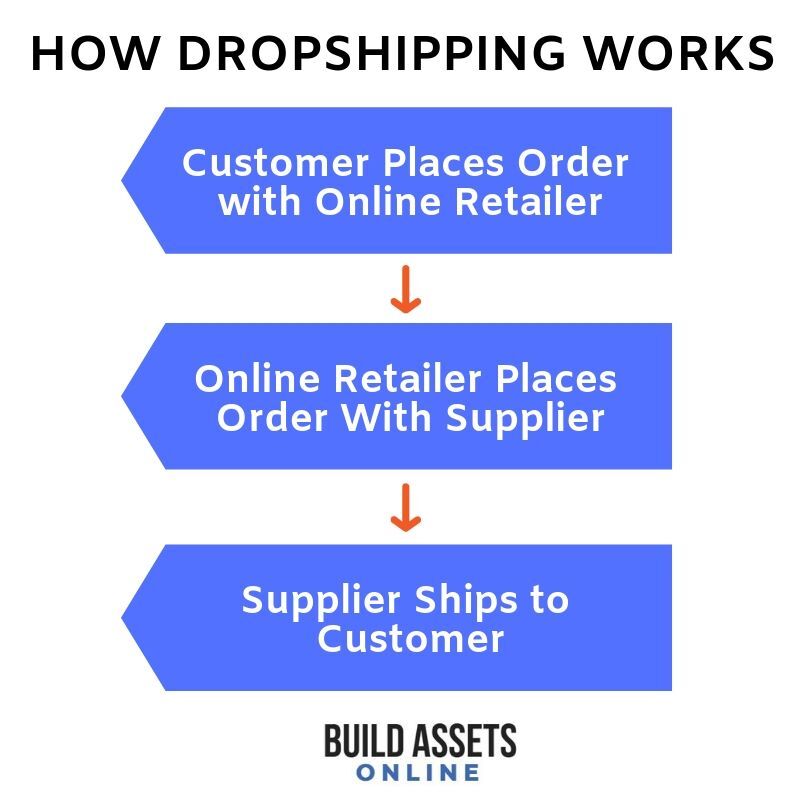Dropshipping has become a popular business model in the e-commerce industry. It offers entrepreneurs the opportunity to start an online store with minimal investment and inventory management. However, along with its benefits, dropshipping comes with legal considerations that every dropshipper should be aware of to avoid potential lawsuits and legal trouble.
Defining Dropshipping

To understand the legality of dropshipping, you need to first understand what it really is.It’s a fulfillment method. That’s it. It’s simply a way to connect consumers who want to buy a product with the suppliers who provide that product.
Most of the online shopping sites you’re already familiar with are using a form of dropshipping. This includes big names like Amazon and Wayfair.
They’re not carrying all of the items listed on their site in their own warehouses or directly fulfilling orders to customers. Instead, they’re doing the work of attracting the customers. Once they get an order, they’re basically going to the supplier and saying, “Hey Manufacturer, please ship this directly to the customer.”
We worked with a supplier that’s a big seller on Amazon. On the product pages, it says “shipped and sold by Amazon.” However, we know for a fact that the supplier was doing the shipments directly. Dropshipping is even more prominent on sites that sell more expensive items like Home Depot and Houzz.
How to Legally Sell Branded Products
You can legally sell branded products on your own store, as long as you are either accepted as an authorized seller from the company or your supplier has been accepted as an authorized dealer. This also means, you can legally sell trademarked products on your online store if you purchase them from a retail store, such as Walmart, as they have already been approved as an authorized seller of the products.
If you contact a supplier in your own country you can become a reseller of their products. They will send you a contract to sign which will give you the rights to sell branded products from their company. This will generally refer to smaller brands in the initial stages. It’s unlikely Disney or Nike will accept you as a reseller for their products when you’re just starting out.
What Are the Legal Considerations for Dropshipping?
When engaging in dropshipping, it’s crucial to understand the laws and regulations governing this business model. Dropshippers need to comply with various legal aspects to ensure a smooth and lawful operation.

Safety Regulations
As a dropshipper, it is your responsibility to ensure the products you sell comply with your countries mandatory safety standards. Each country’s standards will vary so be sure to research your country’s government website for product safety rules and standards before deciding on products to dropship. You must comply with whichever countries you are dropshipping into, even if you are not a resident in that country.
The safety standards of each country also mean you cannot sell products that are prohibited in a country. Each country will have a list of prohibited and restricted products on its government website. Always do your research before proceeding, especially if you have any doubt about whether a product is permitted or not.
Understanding Dropshipping Laws and Regulations
Dropshippers must familiarize themselves with the legal framework governing their business, including consumer protection laws and regulations related to e-commerce, shipping, and product liability. By understanding these laws, dropshippers can avoid legal pitfalls and protect their business from potential legal action.
Legal Implications of Using Copyrighted or Trademarked Images
Using copyrighted or trademarked images without permission can lead to legal action, potentially resulting in hefty fines or lawsuits. It is essential for dropshippers to use only authorized images to avoid copyright infringement and legal troubles.
Importance of Obtaining Permission to Sell Trademarked Products
Before selling any trademarked products, dropshippers must obtain proper authorization from the trademark owners. Selling such products without permission can lead to legal consequences and jeopardize the dropshipping business.
How to Avoid Getting Sued When Dropshipping?
To steer clear of legal issues and potential lawsuits, dropshippers need to implement effective strategies and precautions to safeguard their business.
Choosing Reputable Suppliers from Platforms like AliExpress
Selecting trusted suppliers from reputable platforms such as AliExpress can help dropshippers avoid the risk of selling unauthorized or counterfeit products, thereby reducing the likelihood of legal trouble.
Taking Legal Advice to Ensure Compliance with Dropshipping Laws
Seeking legal guidance from professionals can help dropshippers understand and adhere to the legal requirements of dropshipping, mitigating the risk of legal action and ensuring a legally compliant business operation.
Steps to Start Dropshipping Without Running into Legal Issues
By following a structured approach, including thorough research, obtaining necessary licenses, and complying with regulations, dropshippers can establish and run their business without facing legal hurdles.
What Are the Risks of Dropshipping on Platforms Like Shopify?
While Shopify and similar platforms offer a convenient way to set up an online store, dropshippers must be aware of the legal risks associated with selling products on these platforms.

Potential Legal Action for Unauthorized Use of Copyrighted Images or Videos
Using copyrighted images or videos without permission, especially on popular platforms like Shopify, can lead to legal disputes and potential legal action unless proper authorization is obtained.
Avoiding Legal Consequences for Selling Trademarked Products without Permission
Selling trademarked products without obtaining the necessary permissions exposes dropshippers to legal consequences, including legal claims from trademark owners and the risk of legal proceedings.
Understanding Copyright Laws and Their Impact on Dropshipping
Being well-versed with copyright laws is essential for dropshippers to navigate the legal landscape. Ignorance of these laws can lead to inadvertent copyright infringements, potentially resulting in legal implications.
How Can Dropshippers Successfully Navigate Legal Challenges?
Successful navigation of legal challenges in dropshipping requires adherence to specific legal practices and measures to protect the business from potential legal disputes.

Importance of Properly Licensing Product Images and Videos
Obtaining proper licenses for product images and videos is crucial to avoid copyright infringement issues and legal disputes related to the unauthorized use of visual content.
Legal Considerations for Shipping Times and Customer Expectations
Meeting customer expectations and adhering to shipping regulations are vital components of a legally compliant dropshipping business. Failure to meet these standards can lead to legal repercussions and customer dissatisfaction.
Establishing a Legal Business Entity, such as an LLC, for Dropshipping
Creating a legal business entity, such as a Limited Liability Company (LLC), can provide legal protection and separate personal assets from business liabilities, safeguarding the dropshipper from legal and financial risks.
What Are the Common Mistakes that Beginner Dropshippers Make?
As with any business endeavor, beginners in dropshipping can inadvertently make critical mistakes that expose them to legal trouble if not properly addressed.
Using Copyrighted Images or Videos Without Permission
Unlawful utilization of copyrighted visual content can put beginner dropshippers at risk of legal consequences, emphasizing the importance of using authorized images to avoid copyright infringement.
Selling Products Without Verifying Trademark or Copyright Status
Failing to verify the trademark or copyright status of products can lead to legal disputes and jeopardize the dropshipping business, making it crucial for beginners to conduct proper due diligence and obtain necessary permissions.
The Pitfalls of Dropshipping Trademarked Items without Legal Authorization
Engaging in the sale of trademarked items without proper authorization exposes beginner dropshippers to potential legal action from trademark owners, highlighting the need for legal compliance in all business activities.
Disclaimer
Again I want to reiterate, I am not a lawyer or an accountant and the information in this article is not official legal advice. For professional advice, get in touch with a lawyer or an accountant.

